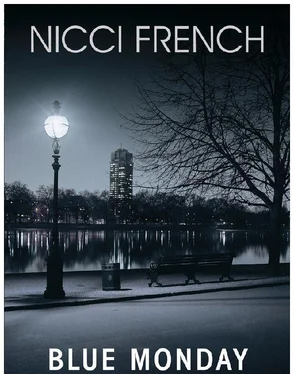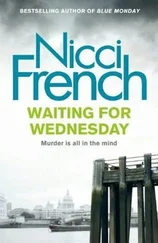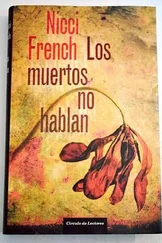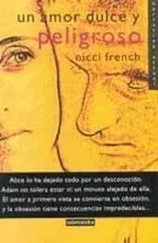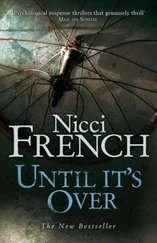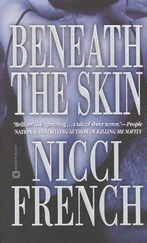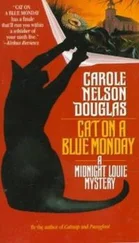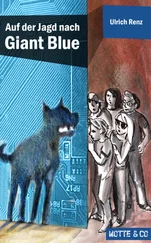‘We’re looking,’ said Langan. He thought: Seventeen and a half hours. Eighteen, now. She’s five years old and she’s been gone eighteen hours. He stared at the father. You could never tell.
Later, Richard Vine squatted on the floor beside the sofa where Rosie huddled, still in her pyjamas and her hair still in yesterday’s plaits.
‘Daddy?’ she said. It was almost the first thing she’d said since her mother had called the police yesterday afternoon. ‘Daddy?’
He opened his arms and gathered her in. ‘Don’t worry,’ he said. ‘She’ll come home soon. You’ll see.’
‘Promise?’ she whispered against his neck.
‘Promise.’
But she could feel his tears on the top of her head, where the parting was.
They asked her what she could remember, but she couldn’t remember anything. Just the cracks in the pavement, just choosing sweets, just Joanna calling her to wait. And her swell of anger against her little sister, her desire for her to be somewhere else. They said it was very important that she should tell them everyone she saw on that walk home from school. People she knew and people she didn’t know. It didn’t matter if she didn’t think it was important: that was for them to decide. But she hadn’t seen anyone, just Hayley in the sweetshop and that man with the pockmarked face. Shadows flitted through her mind. She was very cold, though it was summer outside the window. She put one end of her unravelling plait into her mouth and sucked it violently.
‘Still not saying anything?’
‘Not a word.’
‘She thinks it was her fault.’
‘Poor kid, what a thing to grow up with.’
‘Sssh. Don’t talk as if it’s over.’
‘Do you really think she’s still alive?’
They made lines and walked across the wasteland near the house, very slowly, stooping occasionally to pick things up from the ground and put them into plastic bags. They went from door to door, holding a photograph of Joanna, the one the mother had passed over on that Monday afternoon, with a block fringe and an obedient smile on her thin face. It was a famous photo now. The papers had got hold of it. There were journalists outside the house, photographers, a television crew. Joanna became ‘Jo’ or, even worse, ‘Little Jo’, like a saintly child heroine from a Victorian novel. There were rumours. It was impossible to know where they started but they spread quickly round the neighbourhood. It was the tramp. It was a man in a blue estate car. It was her father. Her clothes had been found in a skip. She’d been seen in Scotland, in France. She was definitely dead and she was definitely alive.
Rosie’s granny came to stay with them and Rosie went back to school. She didn’t want to go. She dreaded the way people would look at her and whisper about it behind her back and suck up to her, trying to be her friend because this big thing had happened to her. She sat at her desk and tried to concentrate on what the teacher was saying, but she could feel them behind her. She let her little sister get snatched.
She didn’t want to go to school but she didn’t want to stay at home either. Her mother wasn’t like her mother any more. She was like someone pretending to be a mother, but all the time she was somewhere else. Her eyes flickered about. She kept putting her hands over her mouth as if she was keeping something in, some truth that would otherwise burst free. Her face became thin and pinched and old. At night, when Rosie lay in bed and watched the car lights from the road outside move across her ceiling, she could hear her mother moving around downstairs. Even when it was dark and everyone else in the world was asleep, her mother was awake. And her father was different too. He lived alone again now. He hugged her too tightly. He smelt funny – sweet and sour at the same time.
Deborah and Richard Vine sat in front of the TV cameras together. They still shared a surname, but they didn’t look at each other. Tanner had told them to keep it simple: tell the world how they missed Joanna and appeal to whoever it was who had taken her to let her come home. Don’t worry about showing emotion. The media would like that. Just so long as it didn’t stop them speaking.
‘Let my daughter come home,’ said Deborah Vine. Her voice broke; she covered her newly haggard face with one hand. ‘Just let her come back home.’
Richard Vine added, more violently, ‘Please give us our daughter back. Whoever knows anything, please help.’ His face was pale and blotched with red.
‘What do you think?’ Langan asked Tanner.
Tanner shrugged. ‘You mean, are they sincere? I’ve got no idea. How can a kid disappear like that, into thin air?’
There wasn’t a summer holiday that year. They had been going to go to Cornwall, to stay on a farm. Rosie remembered them planning it, how there would be cows in the fields and hens in the yard and even an old fat pony the owners might let them ride. And they would go to the nearby beaches. Joanna was scared of the sea – she shrieked when waves went over her ankles – but she loved building sandcastles and looking for shells, eating ice cream cones with chocolate Flakes stuck into the top.
Instead, Rosie went to her grandmother’s house for a few weeks. She didn’t want to go. She needed to be at home, for when Joanna was found. She thought Joanna might be upset if she wasn’t there; it would be as if she didn’t care enough to wait.
There were meetings in which detectives leafed through statements by fantasists, previous offenders, eyewitnesses who had seen nothing.
‘I still think it’s the father.’
‘He has an alibi.’
‘We’ve been through this. He could have driven back to the area. Just.’
‘No one saw him. His own daughter didn’t see him.’
‘Maybe she did. Maybe that’s why she won’t say anything.’
‘Anyway, anything she saw she won’t remember now. It will just be memories of memories of suggestions. Everything’s covered over.’
‘What are you saying?’
‘I’m saying she’s gone.’
‘Dead?’
‘Dead.’
‘You’re giving up on her?’
‘No.’ He paused. ‘But I am taking some of the men off the case.’
‘That’s what I said. You’re giving up.’
One year later, a photograph enhanced by a new computer program, which even its inventor warned was speculative and unreliable, showed how Joanna might have changed. Her face was slightly filled out, her dark hair a little bit darker. Her tooth was still chipped and her smile was still anxious. Some newspapers carried it, but only on an inside page. There had been a murder of a particularly photogenic thirteen-year-old girl and this had dominated the headlines for weeks. Joanna was an old story now, a tingle in the public memory. Rosie stared at the picture until it blurred. She was scared she wouldn’t recognize her sister when she saw her, that she would be a stranger. And she was scared that Joanna wouldn’t recognize her either – or would know her but turn away from her. Sometimes she went and sat in Joanna’s room, a room that hadn’t been altered since the day she disappeared. Her teddy was on her pillow, her toys stacked in the under-bed boxes, her clothes – which would be too small for her – neatly folded in drawers or hanging in the wardrobe.
Rosie was ten now. Next year, she would go to secondary school. She had begged to go to the one a mile and a half away in the next borough, two bus journeys, because there she would no longer be the girl who had lost her little sister. She would just be Rosie Vine, year seven, shy and quite small for her age, who did all right in every subject but wasn’t the best at anything except, perhaps, biology. She was old enough to know that her father drank more than he should. Sometimes her mother had to come and fetch her home because he couldn’t look after her properly. She was old enough to feel that she was an older sister without a younger sister, and sometimes she felt Joanna’s presence like a ghost – a ghost with a chipped tooth and a plaintive voice, asking her to wait. Sometimes she would see her on the street and her heart would miss a beat and then the face would resolve into the face of a stranger.
Читать дальше
